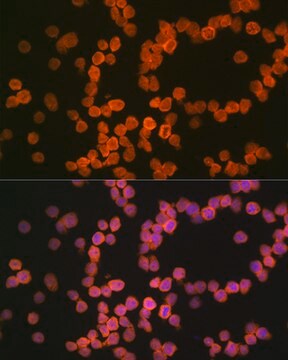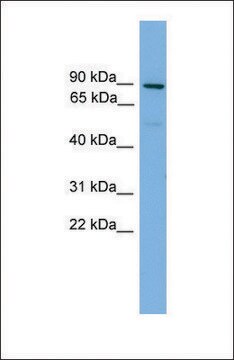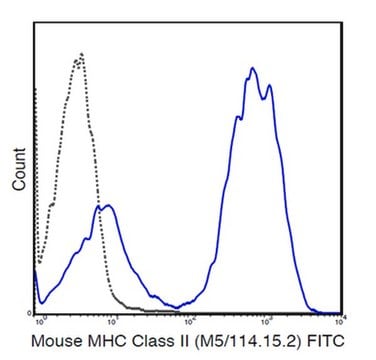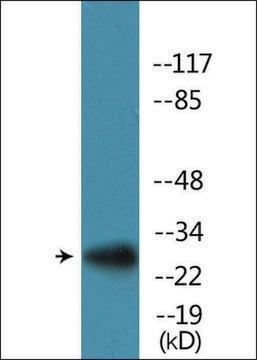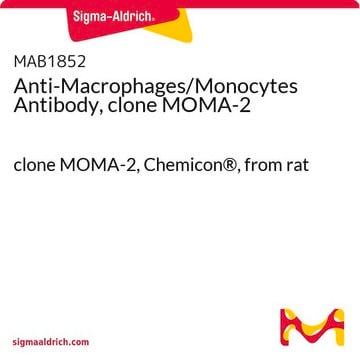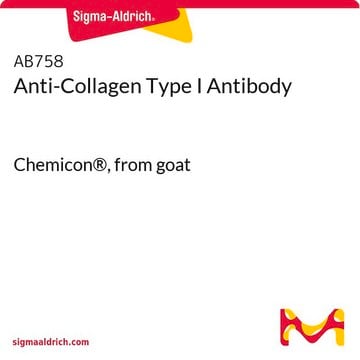SAB4700663
Monoclonal Anti-MHC Class II-FITC antibody produced in rat
clone M5/114, purified immunoglobulin, buffered aqueous solution
Sinónimos:
Rat Monoclonal Anti-MHC Class II-Fluorescein isothiocyanate
About This Item
Productos recomendados
biological source
rat
Quality Level
conjugate
FITC conjugate
antibody form
purified immunoglobulin
antibody product type
primary antibodies
clone
M5/114, monoclonal
form
buffered aqueous solution
species reactivity
mouse
concentration
0.5 mg/mL
technique(s)
flow cytometry: suitable
isotype
IgG2b
shipped in
wet ice
storage temp.
2-8°C
target post-translational modification
unmodified
General description
Immunogen
Application
Biochem/physiol Actions
Features and Benefits
Physical form
Disclaimer
¿No encuentra el producto adecuado?
Pruebe nuestro Herramienta de selección de productos.
Storage Class
10 - Combustible liquids
flash_point_f
Not applicable
flash_point_c
Not applicable
Certificados de análisis (COA)
Busque Certificados de análisis (COA) introduciendo el número de lote del producto. Los números de lote se encuentran en la etiqueta del producto después de las palabras «Lot» o «Batch»
¿Ya tiene este producto?
Encuentre la documentación para los productos que ha comprado recientemente en la Biblioteca de documentos.
Nuestro equipo de científicos tiene experiencia en todas las áreas de investigación: Ciencias de la vida, Ciencia de los materiales, Síntesis química, Cromatografía, Analítica y muchas otras.
Póngase en contacto con el Servicio técnico
